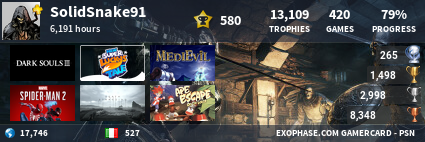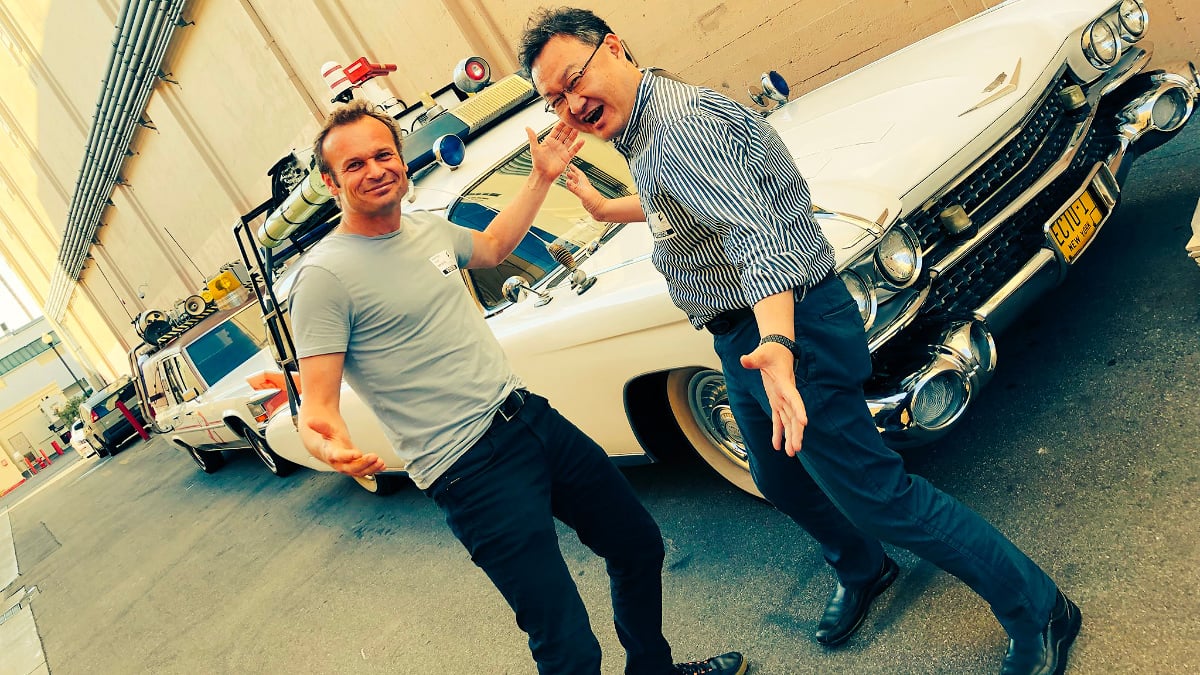Offline
GameInformer: Inside The Mind Of PlayStation Studios' Hermen Hulst
CRUNCH AND COMPANY CULTURE
As head of PlayStation Studios, Hermen Hulst's job has him constantly interacting with developers, searching for new talent, and finding new ways to innovate in the game space. However, Hulst also takes his job of ensuring the members of PlayStation Studios are happy and healthy just as seriously.
When asked about crunch specifically, Hulst didn't hold back, saying there's so much more to the issue that needs to be done. "I read quite a bit of coverage on the topic of crunch and crunch culture," says Hulst. "And to me, I always think that's such a simplification of everything you need to do. I could easily say, 'We don't do crunch,' and 'I don't like crunch one bit.' But that's not enough."
Hulst speaks to a slew of issues facing developers and the different layers to them. "It can be just as stressful for a developer to be underutilized as it is to be working too many hours, or to work on something that is not clear. Or for a developer to join a studio and feel unseen, like [they're] at home and nobody knows what [they're] doing. There's so many problems and so many issues that impact the well-being of our staff."
Team Asobi experienced firsthand Hulst's care for members' well-being. "Hermen was there for us in the early days of Team Asobi as a careful mentor, making sure we struck a good balance between work and personal time," says studio and creative director Nicolas Doucet. "I think he takes great consideration towards the well-being of his people."
Hulst stresses that healthy career progression and transparency are important, as is making sure to celebrate a team's successe
Hulst recently revealed that PlayStation Studios currently has 25 titles in development, with over half being new IP. "I want us to develop a wide variety of games," he says. "We're a truly global organization, developing [games] in Japan, Europe, and America. I want the games to be both bigger and smaller and in different genres." Hulst says the PS5 launch lineup showcased this variety with a mix of internal and external developers of different team sizes creating widely different experiences, such as a triple-A juggernaut Insomniac launching Marvel's Spider-Man: Miles Morales to a smaller studio like Team Asobi creating a family-friendly 3D platformer introducing the PS5's capabilities.
Horizon Forbidden West, the God of War sequel, and Gran Turismo 7 are all currently in development, but Hulst also teased some new projects. "There's a lot more that we've got in store that's still unannounced," he notes. "We have discussed a new partnership with Jade Raymond's new Haven studio. I met with her and some of her team and I'm really excited about what they are working on now."
As Hulst looks into the future, he still sees Sony's exclusives as a big part of it, so don't expect core franchises to jump ship to Xbox Series X/S. However, there is a chance for some titles to appear on PC sometime later, like we saw with Horizon Zero Dawn and Days Gone. "The one exception to the rule, that was MLB The Show; I think what people have to realize is that it's actually [MLB Advanced Media] that's the publisher on Xbox, so it's not us," he explains. "I honestly can't see us doing that with one of the platform-defining experiences that we're making at PlayStation Studios."
THE FUTURE OF JAPAN STUDIO
Japan Studio, responsible for gems like Gravity Rush, The Last Guardian, and Ape Escape, went through a restructuring just this past April that re-centered the studio around Team Asobi, developer of Astro's Playroom. As Head of PlayStation Studios, Hermen Hulst says that Japanese games are core to Sony's identity, despite rumors of the contrary."I will say that we are in some ways very much a Japanese company still," says Hulst. "That's our heritage. That's still part of who we are. We love our Japanese games."
When asked what the restructuring of Japan Studio means for the future, Hulst was enthusiastic about continuing to move forward in the Japanese development scene. "We're building out Team Asobi under Nicolas Doucet, so we're actually investing in that team. People forget sometimes that we have Polyphony Digital, which is a team in two locations. We are investing in our external development group out of Tokyo as well, and that's a team that has obviously worked with the likes of From Software and Kojima Productions. So we are very invested in Japanese development and Japanese development is something that we love ... I think it's such a core part of the PlayStation identity that I can't ever see us shy away from Japanese or even Asian development."
"We are investing in our external development group out of Tokyo as well, and that's a team that has obviously worked with the likes of From Software and Kojima Productions. So we are very invested in Japanese development and Japanese development is something that we love ... I think it's such a core part of the PlayStation identity that I can't ever see us shy away from Japanese or even Asian development."Hulst says that while PlayStation games have had great success on PC, the console versions still are the priority and games will hit there first. "Typically, there have been about two years between the release on our platform and the PC platform," he says. "But you can rely on us to continue to create platform-defining exclusive content for PlayStation – that's part of the reason why we exist. It's really important for us to squeeze the maximum out of the platform, to build showcases for the platform, and really let the audience see what these great features are contributing to the overall experience."
Sony has been able to stay at the top of its game, and Hulst wants to keep that momentum going. "We are growing PlayStation Studios," he says. "We are investing in the amazing teams we have. We are signing up new developers. We continue to focus on quality. We continue to focus on experiences that in my mind are experiences that matter – that sometimes only could have been created by us. That's what I stand for. And I will ensure that we're going to carry on making those."




